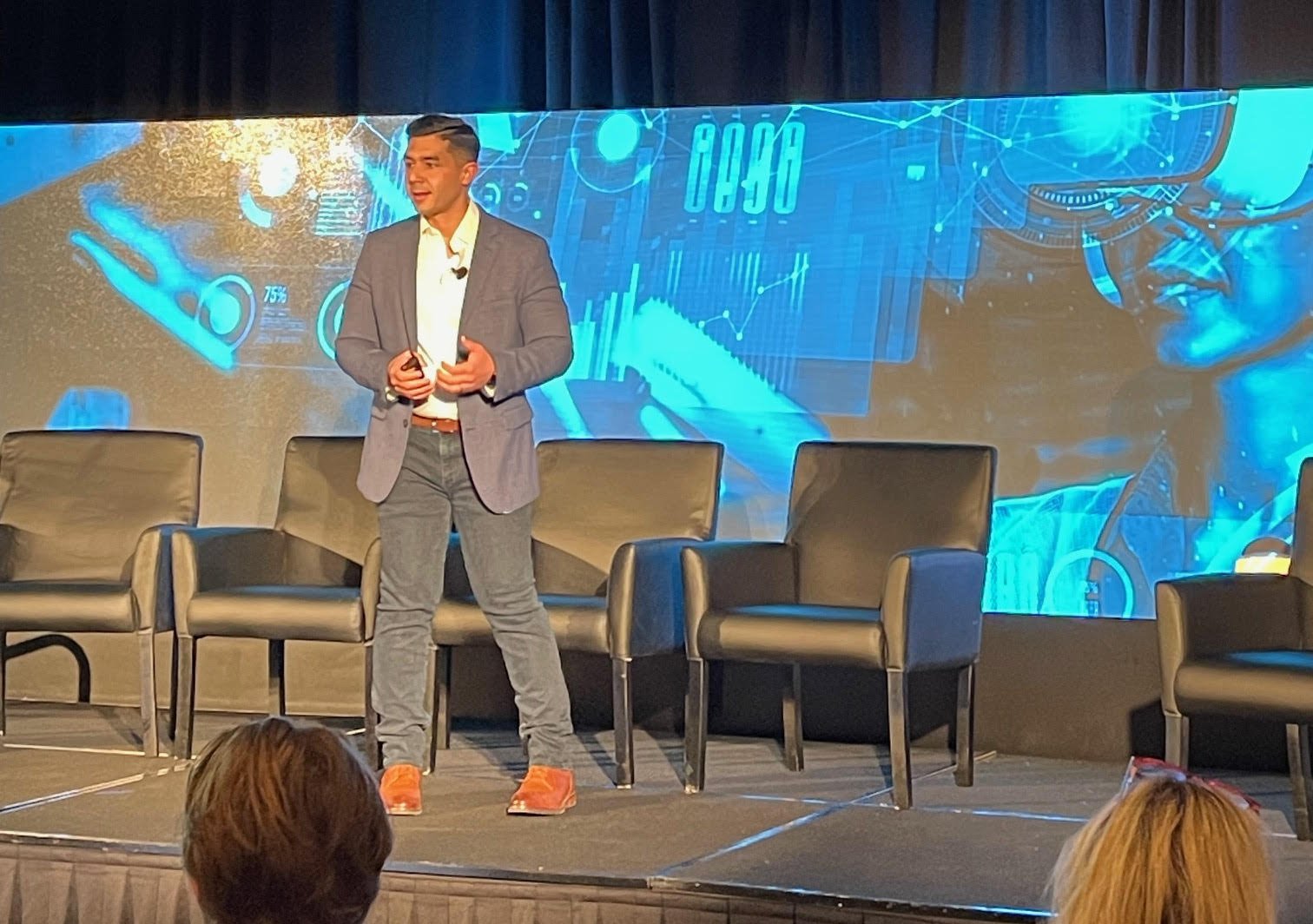A Closer Future: New Technologies for Human Connection
/At this year’s Industrial IMMERSIVE Week, Dan Nieves of Meta delivered an inspiring session titled, "A Closer Future: New Technologies for Human Connection." His talk highlighted the exciting technological innovations shaping our world and how they are set to revolutionize human connection and work.
Nieves began by acknowledging the enthusiasm in the room, emphasizing the thrill of working with new technologies at such a pivotal moment. He framed his discussion by looking back at past technological paradigm shifts—such as the invention of the mouse, the adoption of TCP/IP, and the launch of the first webpage. These moments, he noted, were not fully appreciated in their time but have since transformed society.
The heart of Nieves' message centered on the concept of innovation, which he described as a gradual process that often feels sudden once it reaches its tipping point. He explained that while it's challenging to predict the future accurately, it’s crucial for businesses to anchor their strategies in the persistent needs of their customers and overlay new technologies to meet those needs effectively.
He cited examples of skepticism towards new technologies, reminding the audience of how the internet was once dismissed as a passing fad. Nieves underscored that technological shifts might seem impossible until they become inevitable, often with a delay in realizing their full impact.
To illustrate this point, Nieves shared a clip of Bill Gates being interviewed about the internet—twelve years after its launch—highlighting how even then, its potential was underestimated. This served as a reminder of the importance of embracing innovation and preparing for technological shifts to gain a competitive advantage.
Nieves shared compelling statistics from a Deloitte study, showing that 92% of surveyed manufacturers are experimenting with at least one metaverse-related use case. He also highlighted success stories from companies like Duke Energy and Mortenson, who have leveraged immersive technologies for training and efficiency improvements, respectively.
Looking ahead, Nieves discussed the evolution of work, predicting that by the end of the decade, mixed reality and augmented reality devices will integrate immersive spatial computing into everyday workflows. This shift will impact various sectors, from technician training to global collaboration in industrial design, driven by advancements in AI and digital twins.
Nieves outlined three key technology areas crucial for this future:
Mixed Reality: This technology merges the physical and digital worlds, enabling seamless interaction with both. Devices like Quest 3 are breaking down the barriers between these realms, offering new ways for businesses to operate.
Advances in AI: AI is set to enhance productivity, creativity, and connectivity. Meta's AI models, such as LAMA 2, are driving innovation and providing tools for exploring new applications.
Evolving Form Factors: Future form factors, such as smart glasses, will integrate AI and mixed reality into comfortable, everyday wearable devices. These advancements will enable users to access information and assistive technologies seamlessly throughout their day.
Nieves also showcased a clip featuring photorealistic avatars, exemplifying the next level of connection that immersive technologies can offer. This technology aims to overcome the limitations of video conferencing by providing a more authentic and interactive experience.
He concluded by emphasizing that no single company can achieve this future alone. Collaboration and partnership are essential to unlock the full potential of these technologies. As stewards of innovation, the audience members were encouraged to work together to harness the convergence of mixed reality, AI, and evolving form factors to shape the next evolution of work.
And mark your calendars for March 3-4, 2025, to join us in Houston, Texas, for the 7th annual Industrial IMMERSIVE week.



